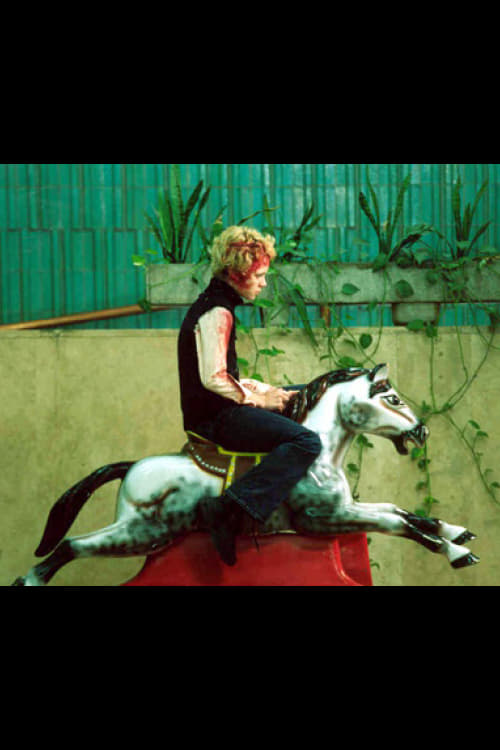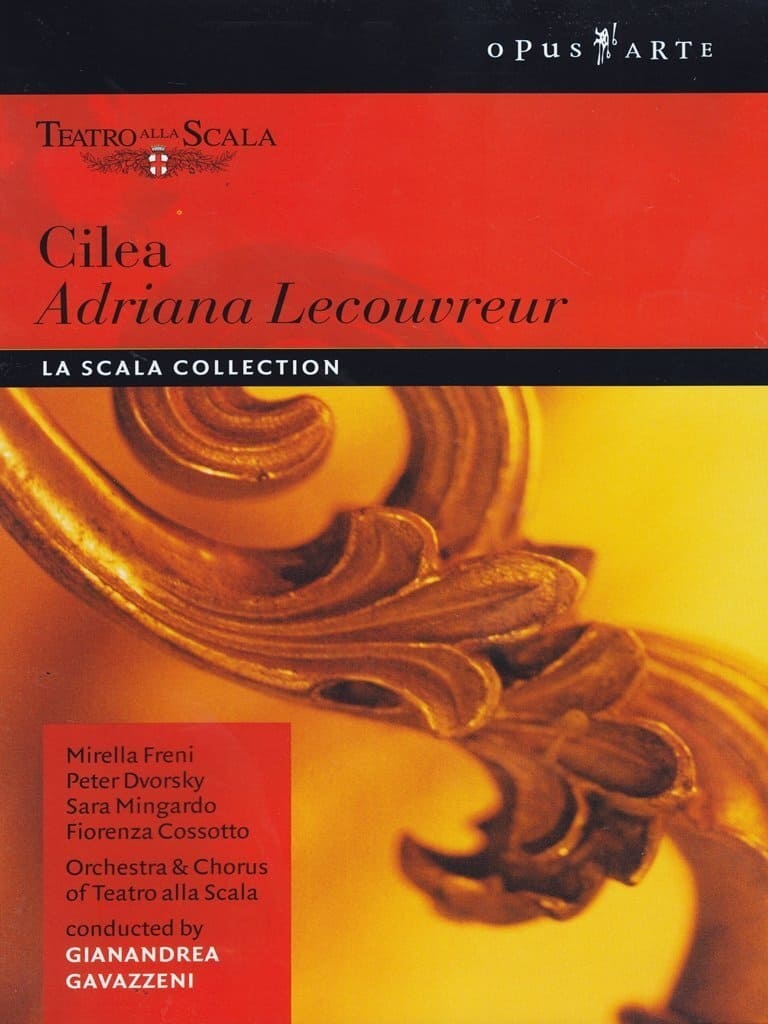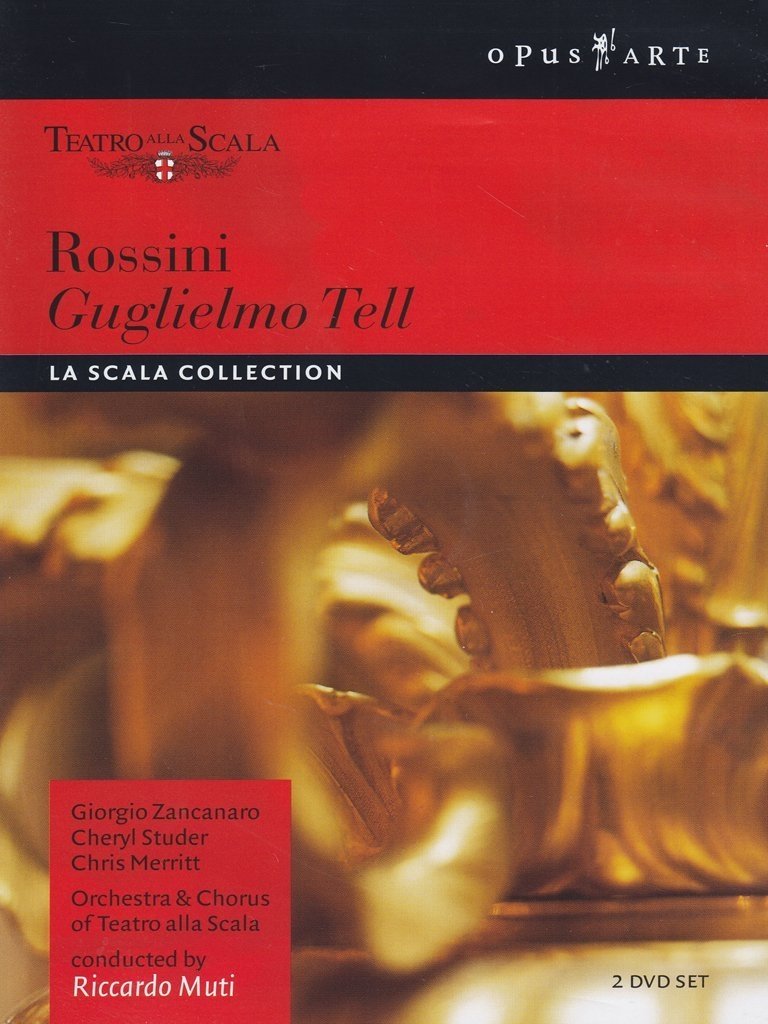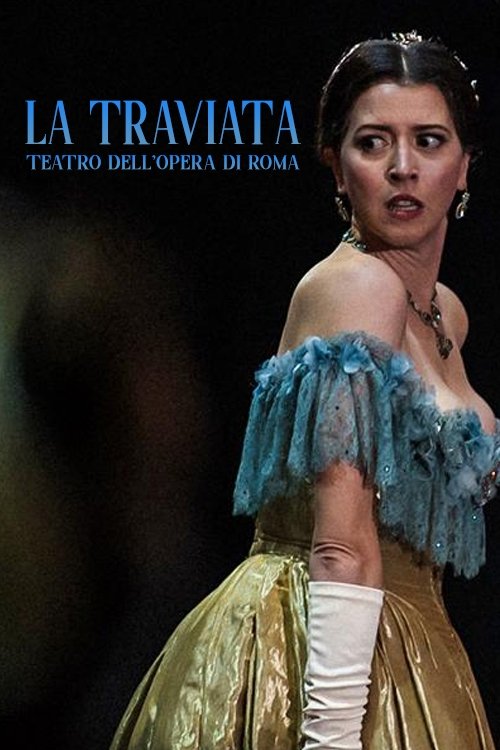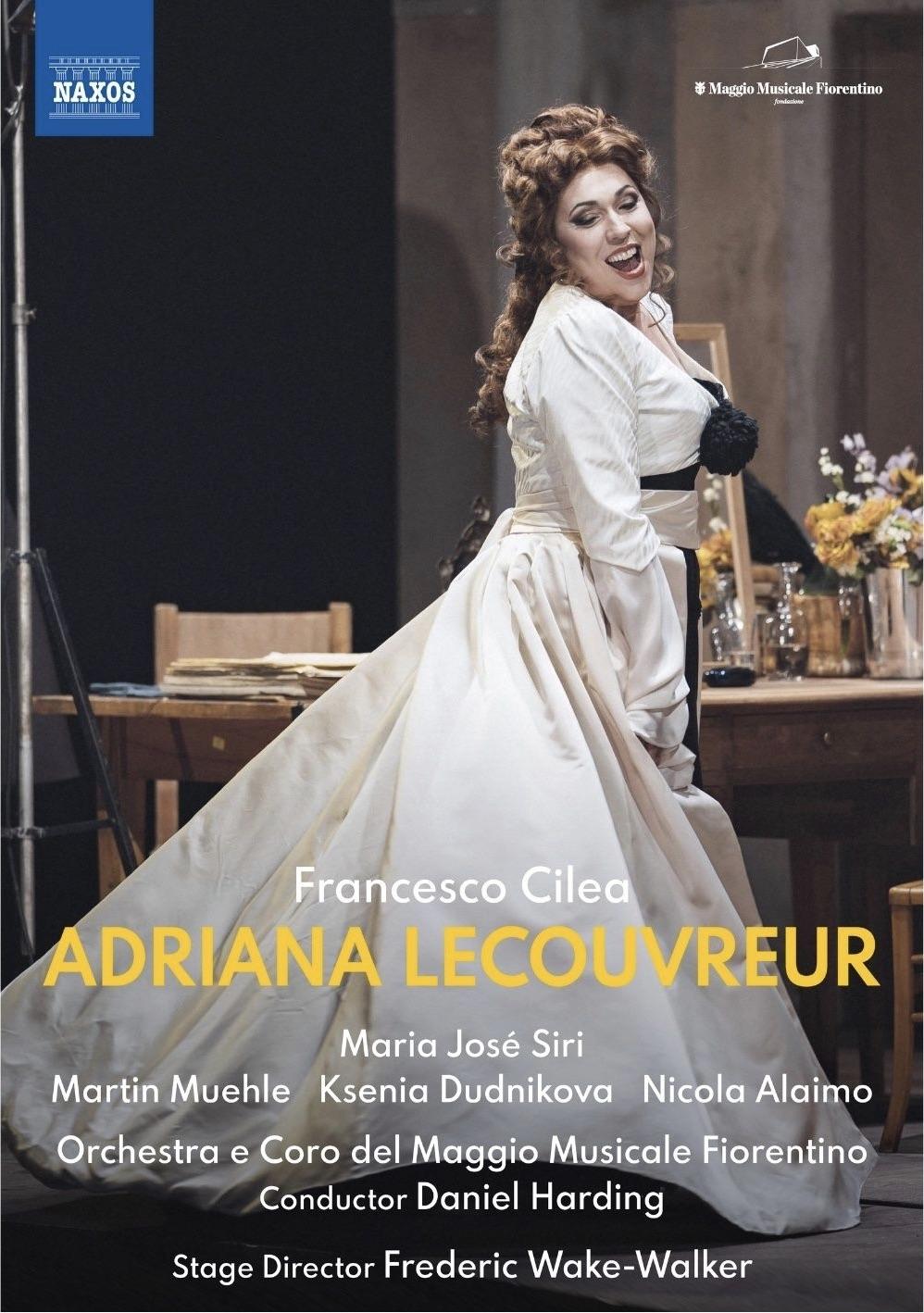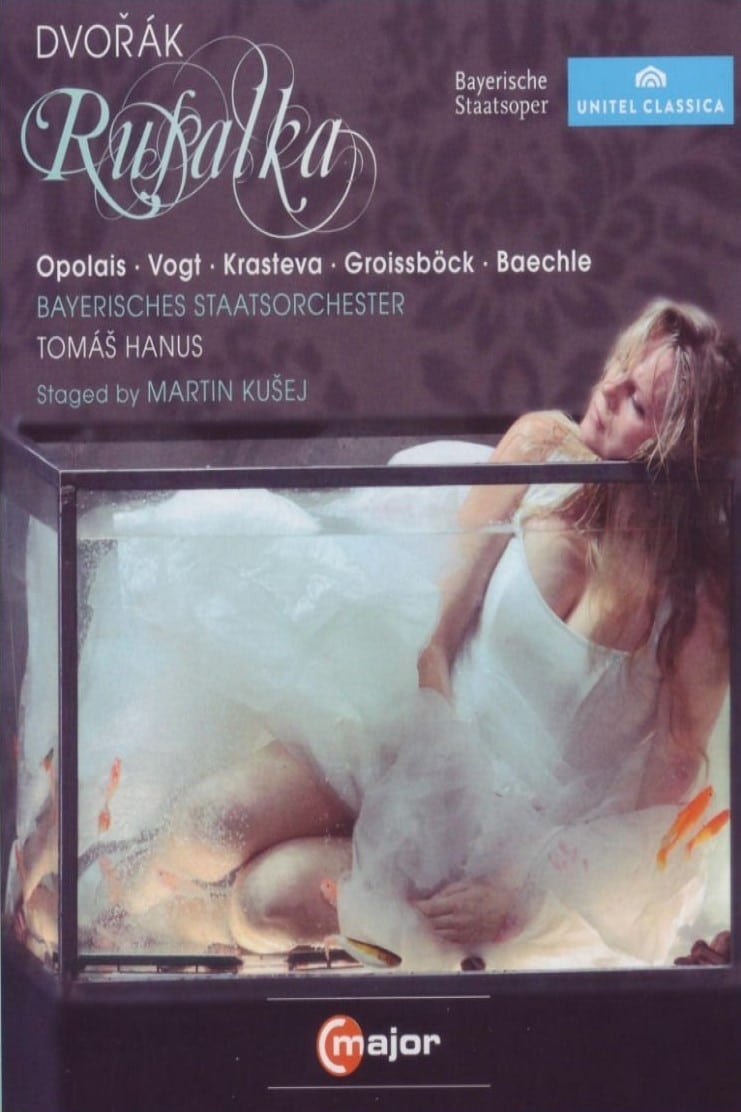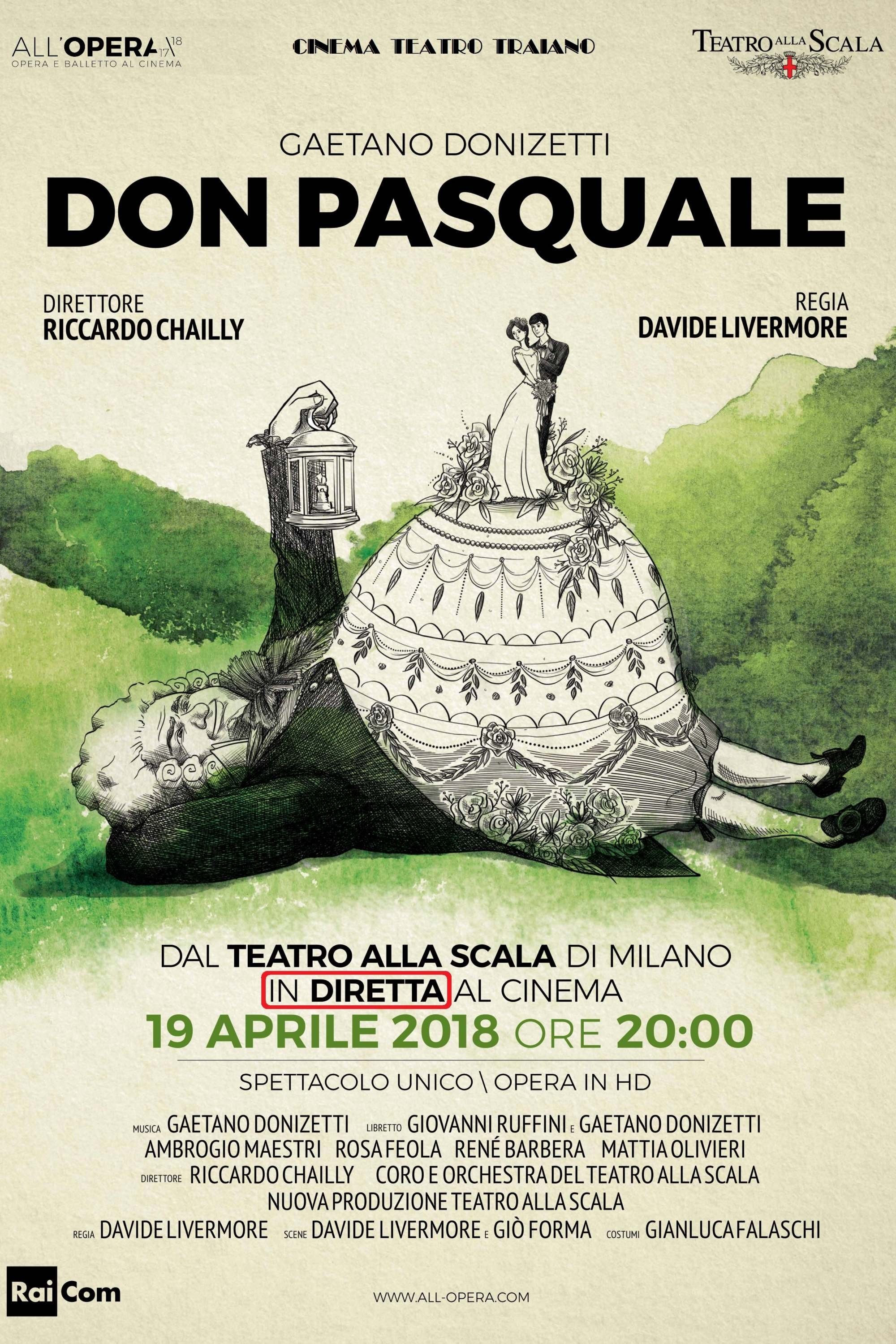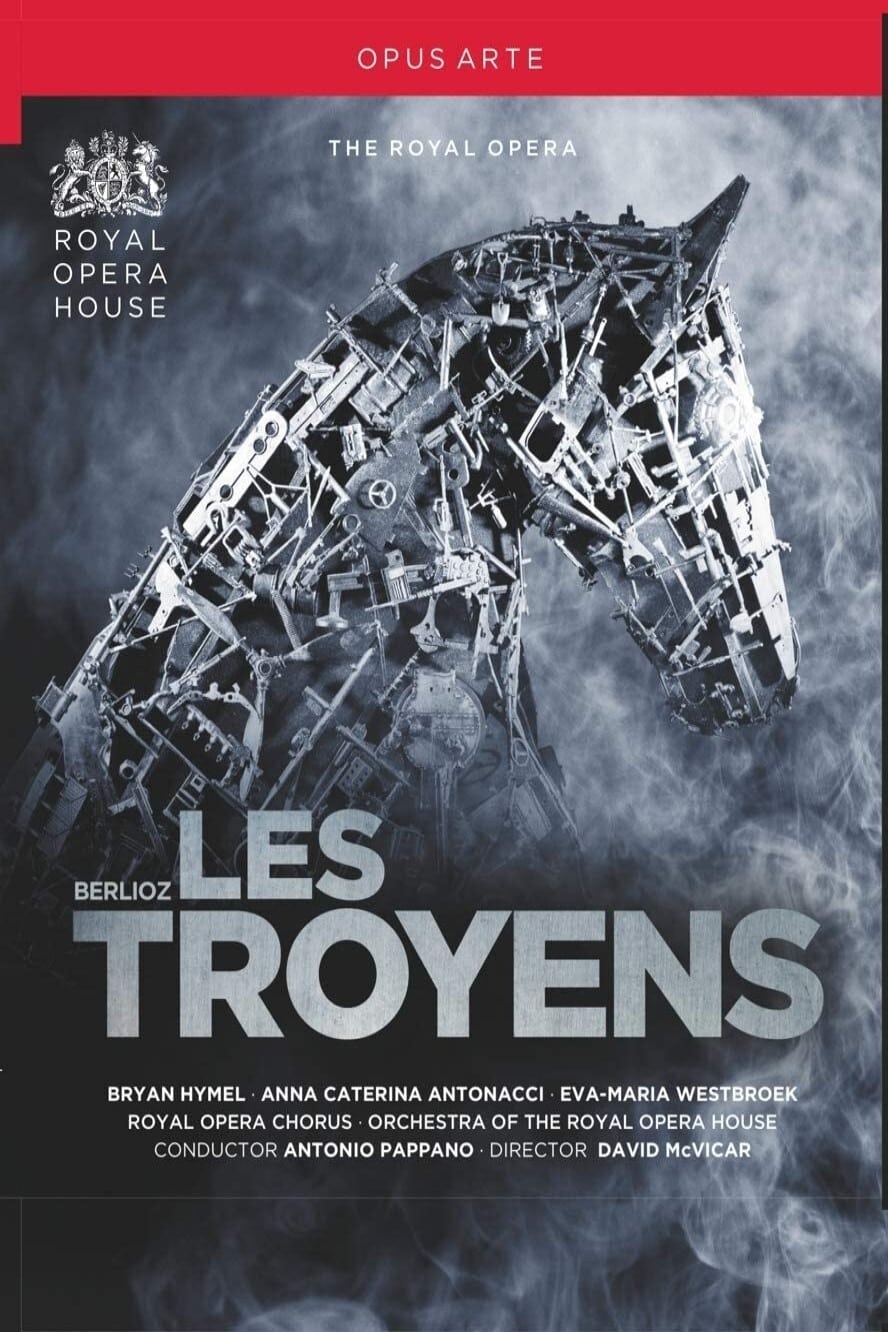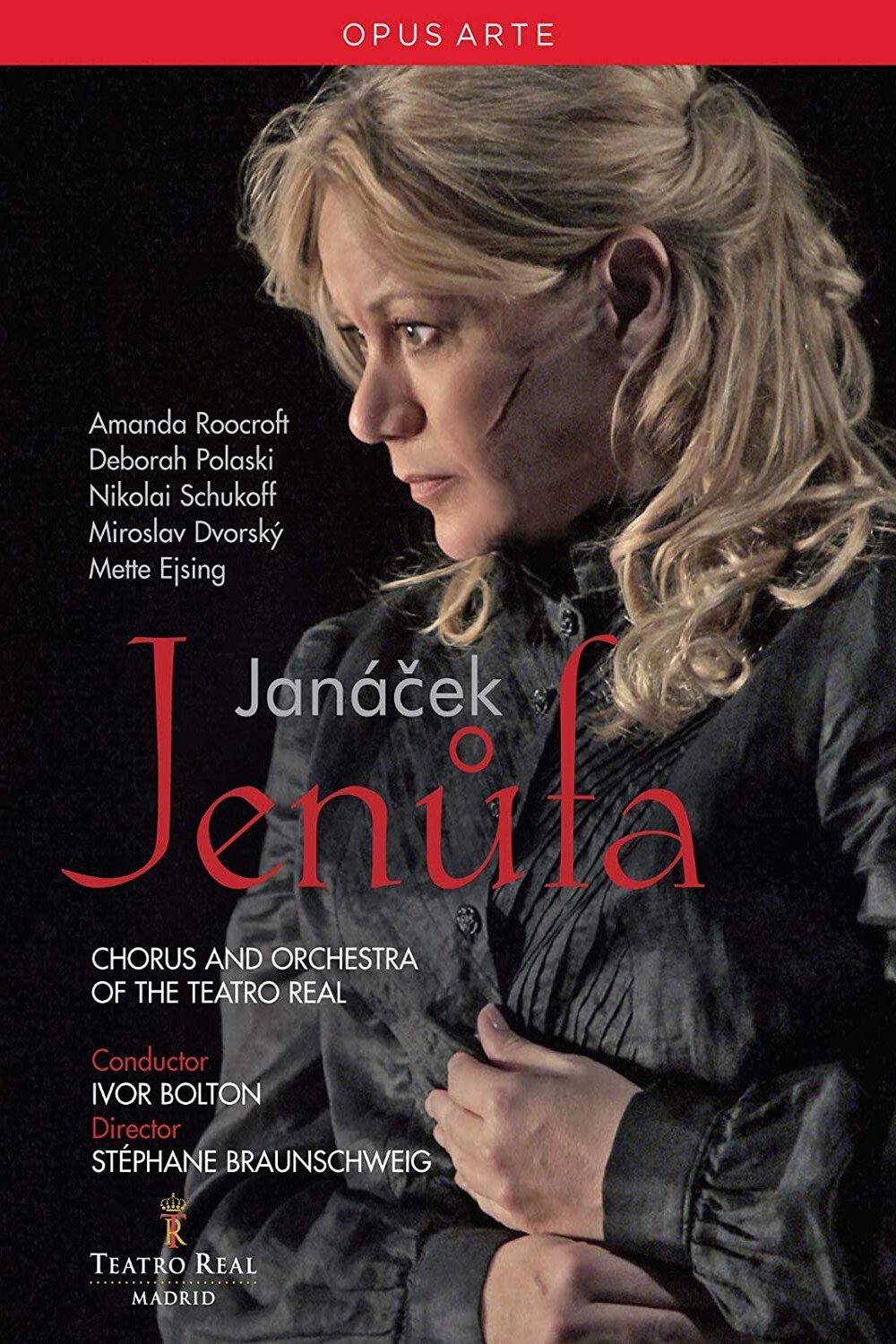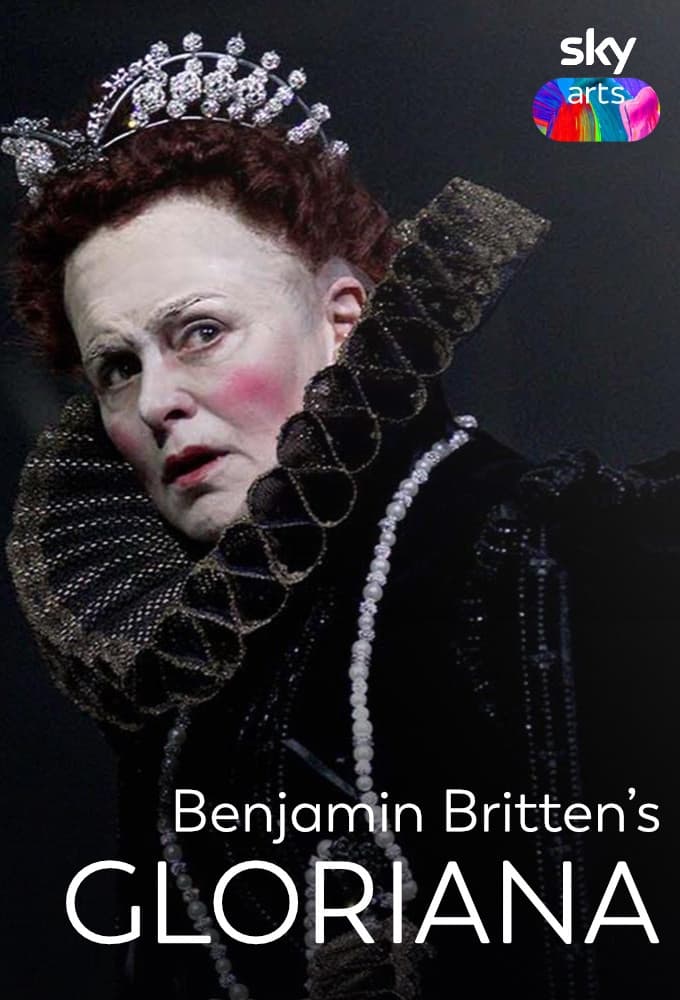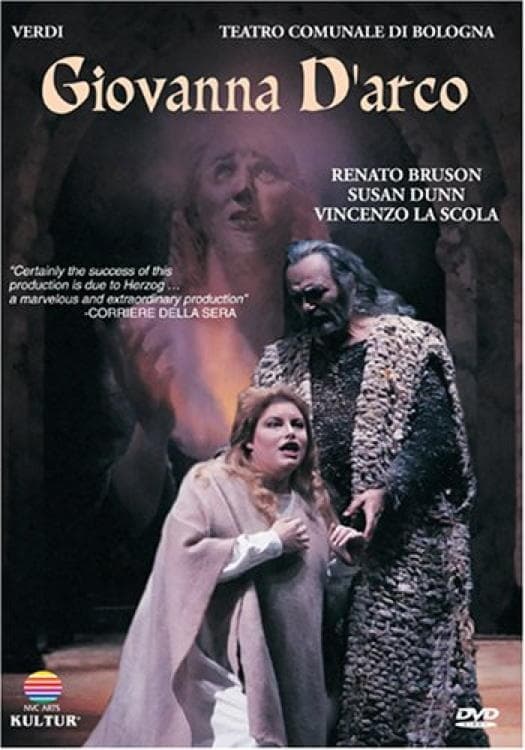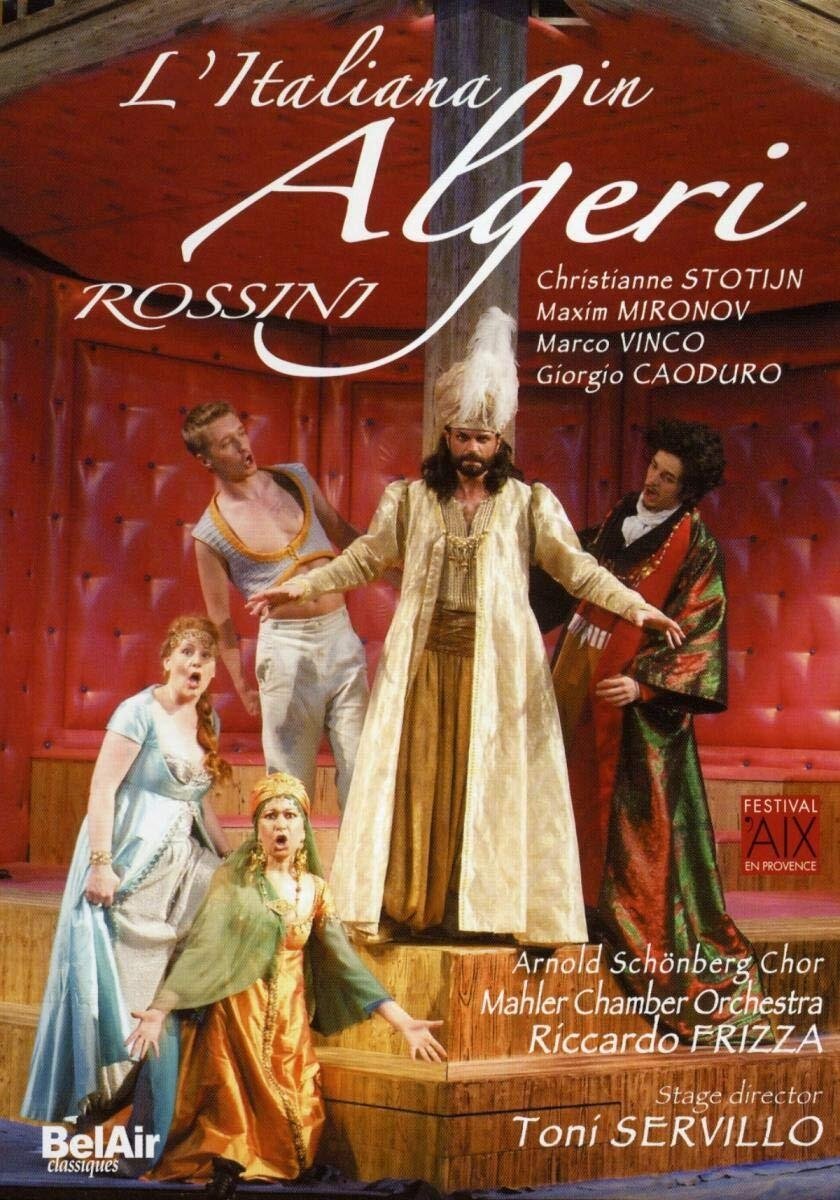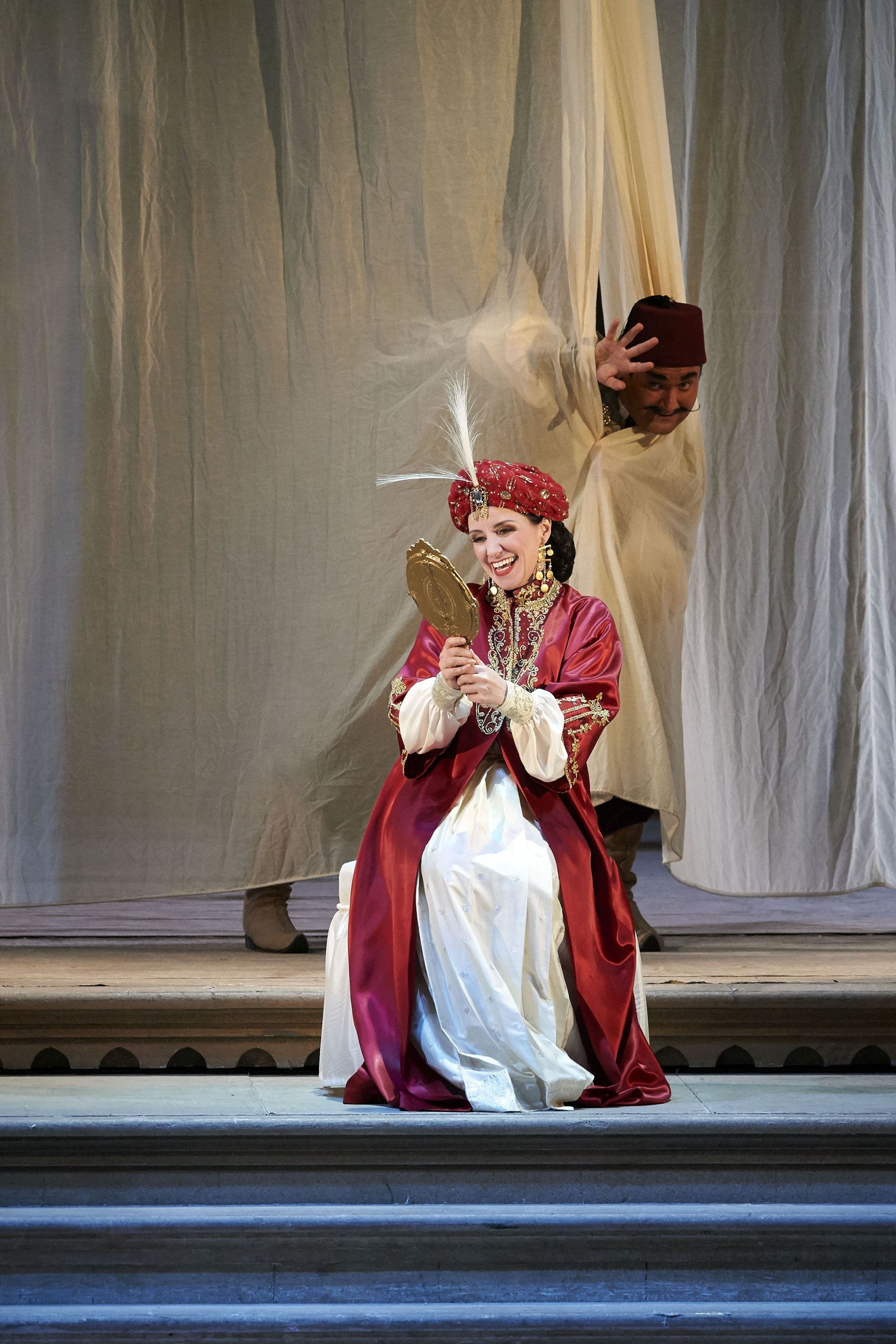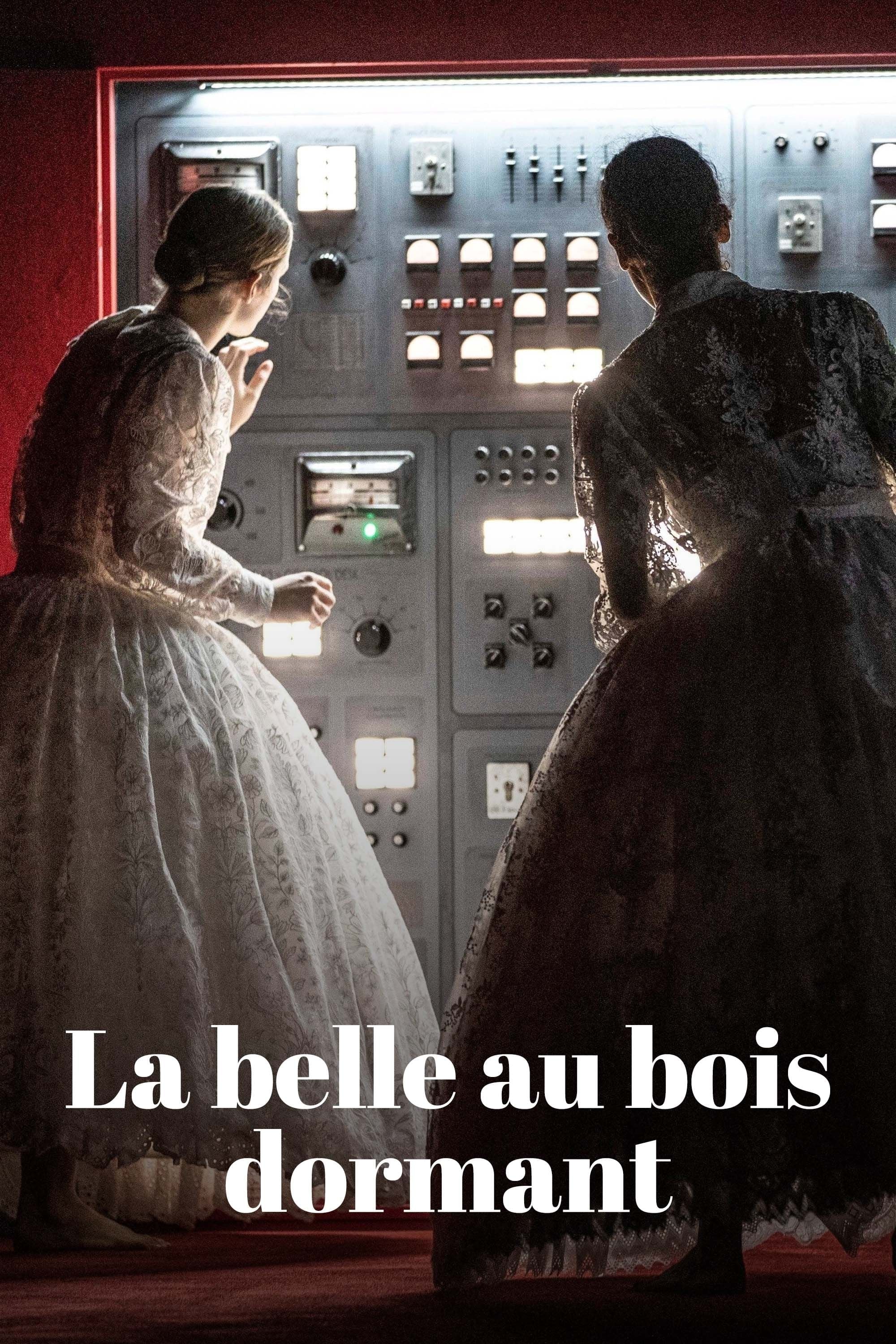
Marcos Morau : La Belle au bois dormant (2022)
Overview
Production Companies

Additional Info
| Budget | $0.00 |
|---|---|
| Revenue | $0.00 |
| Original Language | fr |
| Popularity | 0.151 |
Directed By
Isabelle Julien
TOP CAST
Similar Movies
A 78-as Szent Johannája
Jeanne's beautiful breasts spill out from her torn clothes, and her gouged internal organs lie beneath. The contrast between death and eroticism is captured in a profound image. The opera that unfolds in the underground ward comes to a powerful catastrophe with jazz-like dissonance. Are they the living or the dead, shedding blood and singing in high spirits? The director comments, "This film will be the beginning of a new contemporary opera film“.
Donizetti: Lucia di Lammermoor
Lucia di Lammermoor, dramma tragico in three acts by Gaetano Donizetti (1797 - 1848). Libretto by Salvadore Cammarano, after Walter Scott's 'The Bride of Lammermoor'. First performance in Naples, Teatro San Carlo, 26 September 1835 Recording: December 23 2015 - Gran Teatre del Liceu | Barcelona Director: Fabrice Castanier Conductor: Marco Armiliato Orchestra & Chorus of the Gran Teatre del Liceu
Adriana Lecouvreur
Francesco Cilea's Adriana Lecouvreur concerns a doomed love based on a real story about an actress involved in a famous love triangle. Mirella Freni sings the title part in this production that was broadcast on television originally in 1989. Gianandrea Gavazzeni conducts the orchestra. Live from La Scala, 1989
La Traviata
Mario Martone signs direction and scenes of this new film-work of Verdi's masterpiece. On the podium of the Orchestra of the Teatro dell'opera in Rome its musical director, maestro Daniele Gatti. the new set-up of the opera to a libretto by Francesco Maria Piave is embellished with costumes by Anna Biagiotti and photography by Pasquale Mari.
Adriana Lecouvreur
Francesco Cilea's Adriana Lecouvreur was inspired by the real-life story of a celebrated actress at the Comédie-Française who was much admired by Voltaire. Hailed as a masterpiece, the opera was triumphantly staged in cities around the world after its premiere in 1902. The dramatically effective narrative is a passionate love triangle filled with intrigue and complicated plot twists set in the gallant 18th century. Its subtle ironies and gorgeous cantabile style of music provide a perfect vehicle for the star cast in this stunning production from the Teatro del Maggio Musicale Fiorentino.
Step Up 2: The Streets
When rebellious street dancer Andie lands at the elite Maryland School of the Arts, she finds herself fighting to fit in while also trying to hold onto her old life. When she joins forces with the schools hottest dancer, Chase, to form a crew of classmate outcasts to compete in Baltimore s underground dance battle The Streets.
Dvorak: Rusalka
A legend of mermaids, mere mortals, and sylvan glades. Be transported to a mystical world of water sprites, witches, and wood nymphs. In exchange for love, Rusalka will relinquish not only her mermaid magic, but also her voice.
Les Troyens
After the destruction of Troy, the Trojan warrior Énée sets out on a journey to found a new dynasty. He meets Didon, Queen of Carthage, and falls in love. But will Énée's love for Didon prove stronger than his sense of duty? LES TROYENS ('The Trojans') is a tour de force of music that ranges from fiery military marches to intense choruses, passionate soliloquies – such as those of the prophetess Cassandre – and the lyrical love duets of Didon and Énée. It is Hector Berlioz's largest work and he wrote the libretto himself, drawing upon his intimate knowledge of Virgil's Aeneid. To the composer's disappointment, LES TROYENS was only performed once in full during his lifetime and was often presented in shortened form during the 20th century. The Royal Opera's production provides a rare chance to see this epic work in its entirety. David McVicar's staging is on an enormous scale, assembling one of the largest casts ever seen at Covent Garden.
Janacek: Jenufa
"Yenufa" is an outstanding phenomenon in the music of the 20th century. Drawing on Moravian folklore, Janáček faithfully and deeply conveyed the drama of a peasant girl. The composer followed the path of Mussorgsky, revealing the spiritual life of people through the recreation of intonations of living speech. The libretto is based on a drama written in a naturalistic manner. Free from naturalism, Janáček's music has powerful emotional strength and psychological truth. It was written during a difficult period in the composer's life (illness and death of his daughter).
Gloriana
Performed at Madrid's historic Teatro Real in 2018, Ivor Bolton conducts Benjamin Britten's opera based on Lytton Strachey's 1928 Elizabeth and Essex: A Tragic History. In her repeated clashes with the Earl of Essex-a longtime favorite of the queen who was ultimately put to death for treason-Elizabeth I is depicted as flawed and vain, human and sympathetic.
Giovanna d'Arco
Director Werner Herzog, one of the most highly acclaimed German film makers, joins forces with the great Italian conductor Riccardo Chailly to effect a masterful rendition of this rarely-performed opera involving spectacular scenes of alternating light and dark, pageantry and intimacy. Staged and recorded at Teatro Comunale di Bologna in Bologna, Italy.
Rossini: L'Italiana in Algeri - Festival d'Aix-en-Provence
Live performance, Festival d'Aix-en-Provence, July 2006. 'L'italiana in Algeri' (English: 'The Italian Girl in Algiers') is an operatic dramma giocoso in two acts by Gioachino Rossini to an Italian libretto by Angelo Anelli, based on his earlier text set by Luigi Mosca. It premiered at the Teatro San Benedetto in Venice on 22 May 1813. The music is characteristic of Rossini's style, remarkable for its fusion of sustained, manic energy with elegant, pristine melodies.
L'Italiana in Algeri
"This is Vienna State Opera live at home". April 2015. 'L'italiana in Algeri' (English: 'The Italian Girl in Algiers') is an operatic dramma giocoso in two acts by Gioachino Rossini to an Italian libretto by Angelo Anelli, based on his earlier text set by Luigi Mosca. It premiered at the Teatro San Benedetto in Venice on 22 May 1813. The music is characteristic of Rossini's style, remarkable for its fusion of sustained, manic energy with elegant, pristine melodies.
